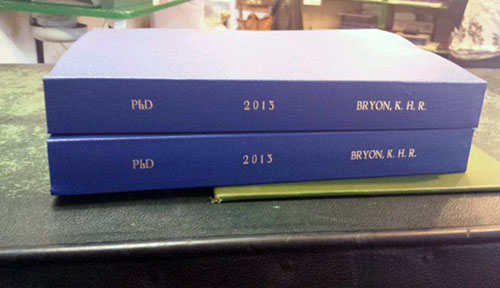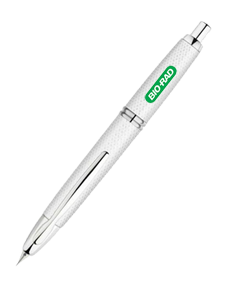
Popular topics

Getting Started in Science Writing and Communication

If you are enthusiastic about communicating scientific findings, you may be considering a career in science writing or science communication. Alternatively, you may simply enjoy sharing your love of your subject with others alongside your research and want to know how to do it effectively. In this blog, Lab Crunches Editor, Kimberley Bryon-Dodd shares her journey from scientist to science communicator and her top tips for getting started in this field.
From Bench to Science Communicator
As a child I always imagined myself as a research scientist, inspired by my aunt who had a successful research career, and my grandfather who bought me my first microscope at the age of 8. I was motivated by the stories of women scientists such as Rosalind Franklin, Barbara McClintock, and Dorothy Hodgkin.
After high-school, I studied Molecular and Cellular Biochemistry at the University of Oxford where I had the pleasure of being taught by internationally renowned research scientists. They had an extensive knowledge of their subject, and some like my undergraduate project supervisor, Associate Professor Alison Woollard, were incredible science communicators. She had a way of explaining her subject that was guaranteed to make you curious about developmental biology and give you a desire to know more. My degree further fueled my passion for biochemistry and, coupled with research experience in my vacations, led me to pursue a PhD on neurotransmission in nematode worms called Caenorhabditis elegans.
Alongside my research project, I started getting involved in science outreach with local schools, science communication at science festivals, and science writing through an internship with the Progress Educational Trust.
During my PhD I had a revelation; I love science but my calling in life is to communicate science to others and not to be the one doing the research. From that moment in time, I sought out every opportunity to communicate science to a variety of different audiences (from kindergarten children to scientists in different fields) and in different formats (from live experiments, science comedy, and art-science collaborations to podcasts, blogs, and news stories). It was this wealth of experience that helped me gain my first role as a Science Communications Officer and set in motion my career as a science communicator.
My Top Tips for Getting Started in Science Communication
1. Do More of What You Enjoy
Not everyone is a natural performer and comfortable up on stage, or on camera (I am definitely not one of those people). Thankfully, there are other ways to communicate science like communicating the latest findings in a press release, popular science topics in blogs, or public engagement – that is explaining research to members of the public or school children. Get experience in different areas to find out what you are good at and what you enjoy doing.
2. Let Your Passion Shine Through
Your enthusiasm for your subject will be conveyed in the tone of your writing, or the energy of your performance. Some of the best blogs I have read by guest contributors for Lab Crunches have been by those who have written about a subject that they enjoy. When someone is not connecting with their topic it often leads to lacklustre work. The same is true for live demos and performances; people who genuinely love what they are doing are animated, and share their enthusiasm for their subject with the audience and make for enjoyable viewing.
3. Volunteer for Experience
Just like you need lab experience to become a researcher, you need to show you can communicate science to get a job in the field. Having a portfolio of work to show at interviews is a huge bonus. Whether you have your own blog, pieces of commissioned content, or a showreel of past live science demos, it demonstrates that you have the skills you need to do the job.
It can be hard to gain initial experience but there are opportunities out there. Winning a science writing competition can help you stand out from other applicants and there are several out there. Lab Crunches runs a Science Writing Competition each year, with the top three articles being published. Some of the best entrants are also invited to become guest contributors with mentorship. We work with them to help develop their writing skills and get published articles they can use for their portfolio. We also accept pitches for articles as a guest contributor, although it helps if you already have some writing experience and an idea about what you want to write about.
Once you have some initial writing experience, you may wish to pitch for pieces for science magazines or blogs. You may also consider a science writing internship, if there are locally available schemes.
Can you volunteer at a science festival – whether live, or virtual? You may start out as an assistant but build up to being a lead demonstrator. There are sometimes also volunteering opportunities in science museums, which can help you learn to communicate science to different audiences.
If you want to write, you could start your own blog, as it demonstrates your writing style and commitment to communication. Plus, the more you write the better you get at it. Other experience could include writing articles for a college publication, producing Vlogs or podcasts, or volunteering to run science demos with local groups like Scouts or schools.
4. Always Think about Who Your Audience Is
An important skill to master is to make sure that whatever you are communicating can be understood by those you are communicating to. As research scientists, we are used to writing for journals in academic language with long complicated terminology. This is not appropriate when talking to nonscientists. Learn how to rephrase what you want to say in a way that your audience understands. For example, when you talk about the immune system to elementary school children qualify it with an explanation they can follow, like “the immune system is your body’s way of fighting off germs”. For different audiences, you may use “viruses and bacteria” instead of “germs”, or even instead talk about “pathogens”. One way to practice is to write an abstract of your work for a lay audience or talk about your research with friends and family that are not involved in science. This ability to succinctly summarize your research is also important for grant applications and your resume.
5. Evolve Your Style
Think about what sort of science communication or science writing career you would like. This may be working in an educational establishment writing press releases and explaining the findings of the researchers who work there, as an entertainer at a science festival, a technical editor for a journal, a medical writer for a pharmaceutical company, a science journalist, a writer of science books, or something else entirely. Know what it is that you want to do and work toward achieving it by gaining relevant experience. Develop your own style and build a personal brand that will help you stand out from other applicants. With practice and perseverance there are plenty of opportunities for you to build a successful and enjoyable career in science communication.
Would You Like to Write for Lab Crunches?
We are always happy to hear from research scientists who have an idea for a blog. For more information about being a Guest Contributor and the editorial process, send us an email.
Get in Touch
You may also be interested in...
















